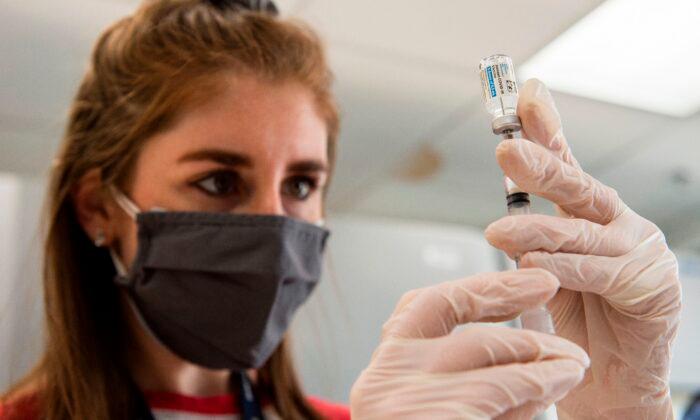In Thursday’s statement, Bishop Kevin Rhoades, chairman of the conference’s Committee on Doctrine, and Archbishop Joseph F. Naumann, chairman of the conference’s Committee on Pro-Life Activities, recommended Catholics get the mRNA vaccines from Pfizer or Moderna over Johnson & Johnson, if possible, because the latter adenovirus vector vaccine was developed with the help of abortion-derived cell lines.
“The approval of Johnson & Johnson’s COVID-19 vaccine for use in the United States again raises questions about the moral permissibility of using vaccines developed, tested, and/or produced with the help of abortion-derived cell lines,” the Bishops wrote in their statement.
“Pfizer and Moderna’s vaccines raised concerns because an abortion-derived cell line was used for testing them, but not in their production. The Johnson & Johnson vaccine, however, was developed, tested and is produced with abortion-derived cell lines raising additional moral concerns.”
Bishop Rhoades and Archbishop Naumann said that when “ethically irreproachable” COVID-19 vaccines are not available, it is morally acceptable for Catholics to receive vaccines that have used cell lines from aborted fetuses in their research and production process.
However, they urged Catholics to try and choose COVID-19 vaccines with the least connection to abortion-derived cell lines when possible.
“Therefore, if one has the ability to choose a vaccine, Pfizer or Moderna’s vaccines should be chosen over Johnson & Johnson’s,” the Bishops continued.
“While we should continue to insist that pharmaceutical companies stop using abortion-derived cell lines, given the world-wide suffering that this pandemic is causing, we affirm again that being vaccinated can be an act of charity that serves the common good,” they added.
The Johnson & Johnson vaccine is the third to be authorized for use in the United States, and unlike Pfizer/BioNTech and Moderna, it only requires one shot.
Johnson & Johnson said in a statement to The Hill on Tuesday, “We are able to manufacture hundreds of millions of doses using our engineered cell-line system and look forward to delivering those doses around the world and help meet the critical need.”
The statement also noted that the vaccine “uses an inactivated non-infective adenovirus vector—similar to a cold virus—that codes for the coronavirus ’spike' (S) protein” and that “there is no fetal tissue in the vaccine” itself.
The Oxford-AstraZeneca COVID-19 vaccine, which isn’t available in the United States, is also a adenovirus vector vaccine that has been developed from kidney cell lines derived from a fetus aborted in 1973.
The Epoch Times has contacted Johnson & Johnson for comment.





